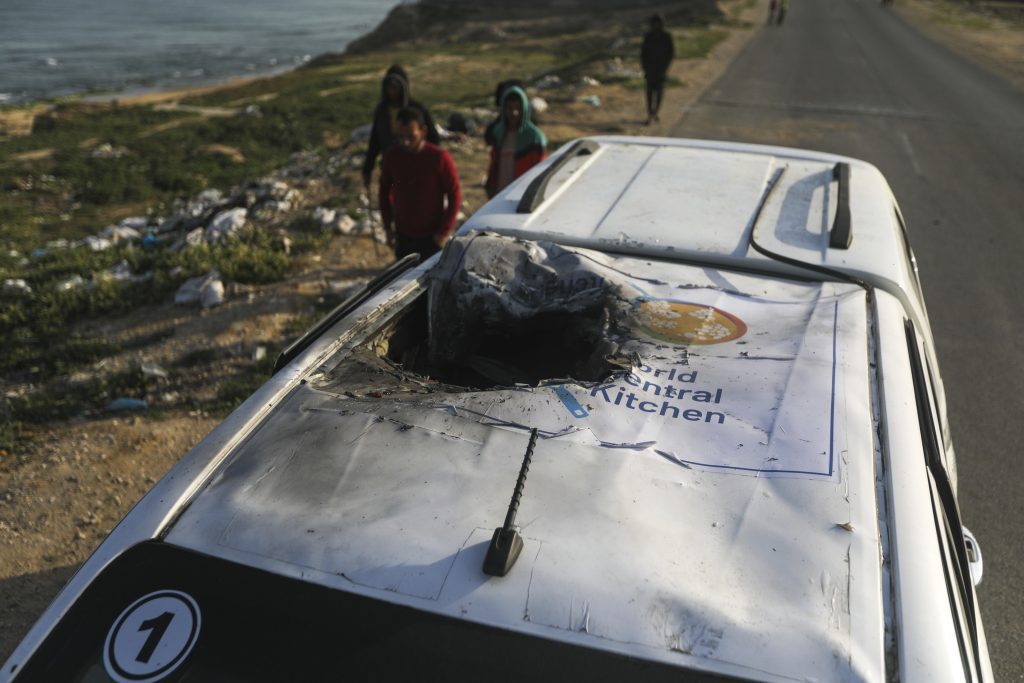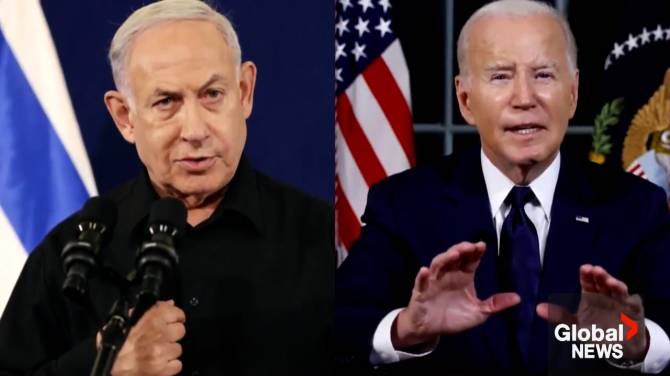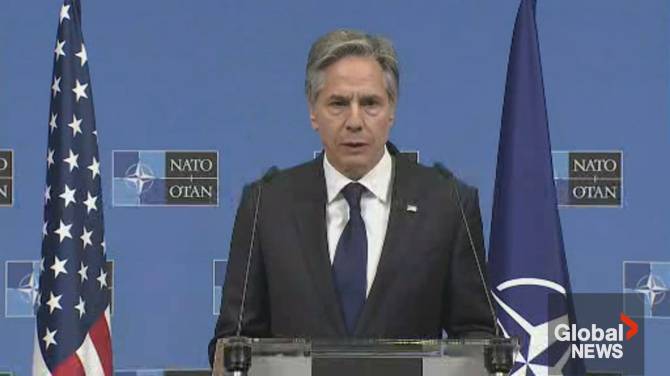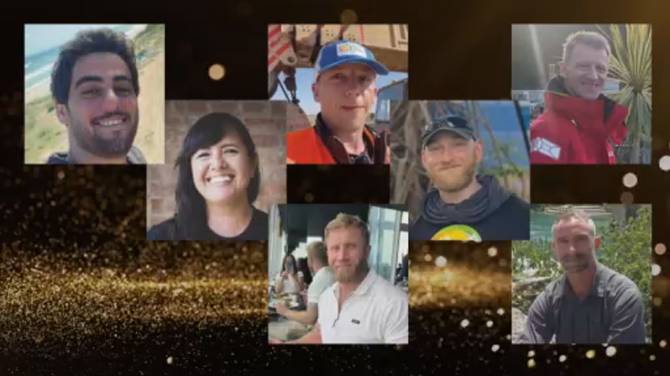The Israeli military stated on Friday that it has dismissed two officers and reprimanded three others for their involvement in drone strikes in Gaza that resulted in the deaths of seven aid workers on a food delivery mission. They mishandled important information and broke the army’s engagement rules. Gaza An investigation by a retired general found that they mishandled important information and violated the army’s rules of engagement, marking an embarrassing admission for the Israeli military.
The investigation's results show an embarrassing acknowledgment by Israel, which is facing increasing accusations from key allies such as the U.S. of not doing enough to protect Gaza’s civilians from its conflict with Hamas. IsraelThis is likely to renew doubts about the Israeli military’s decision-making. Palestinians, aid groups, and human rights organizations have repeatedly accused Israeli forces of firing recklessly at civilians throughout the conflict, a claim Israel denies.
The military spokesman, Rear Adm. Daniel Hagari, said, “It’s a tragedy. It’s a serious event that we are responsible for and it shouldn’t have happened and we will make sure that it won’t happen again.”
Under mounting pressure to hold itself accountable, Hagari and other officials shared the results of the military’s swift and detailed investigation with reporters late Thursday.
The impact of the punishments and the apology on the international outcry over the deaths of the World Central Kitchen workers and the reassurance of international aid groups about safety in resuming operations in Gaza, where nearly a third of the population is on the brink of starvation, remains unclear.
According to the Israeli army’s rules, targets must be visually identified as threats before they can be hit for multiple reasons. However, the investigation revealed that a colonel had authorized the series of deadly drone strikes on the convoy based on one major’s observation from grainy drone-camera footage that someone in the convoy was armed, which military officials said turned out to be untrue.
The army stated that the colonel and the major were dismissed, and three other officers were reprimanded. The results of the investigation were passed to the military’s advocate general, who will decide whether the officers or anyone else involved in the killings should face further punishment or prosecution.
The killings were denounced by Israel’s closest allies and stirred up renewed criticism of Israel’s actions in the nearly six-month-old conflict with Hamas.
The aid workers were three British citizens, a Polish citizen, an Australian, and a Canadian American dual citizen, all of whom worked for the international charity World Central Kitchen founded by celebrity chef José Andrés. Their Palestinian driver also died.
The investigation found two main areas of wrongdoing: officers failed to read messages alerting troops that cars, not aid trucks, would transport workers from the charity, and the cars that were targeted were misidentified as transporting militants.
The investigation criticized officers for ignoring messages warning that cars, not aid trucks, would transport charity workers away from the distribution warehouse, leading to the misidentification of the targeted cars as transporting militants.
The army criticized a major who picked the strike target and a colonel who approved the strike for not having enough information before acting.
The army said they gave the order after identifying one of the car passengers as a gunman. They became suspicious because a gunman had been seen on the roof of a delivery truck on the way to the warehouse. The army showed reporters a video of the gunman firing while on top of a truck.
After dropping off aid at a warehouse, an officer thought he saw a gunman in one of the cars. It turned out the passenger did not have a weapon — the military said it's possible he was just carrying a bag.
The army said it initially targeted one car. As people moved to another car, it targeted that vehicle as well. It did the same thing when survivors moved to a third car. Army officials said drone operators couldn't see that the cars had the words “World Central Kitchen” because it was nighttime.
The army couldn't specify where the communication about the convoy’s plans had broken down.
The army refused to answer questions about whether similar violations of rules of engagement have occurred during the conflict — in which Palestinians, aid workers and international rights groups have repeatedly accused the army of recklessly striking civilians.
The investigation was led by Yoav Har-Even, a retired general.
The seven who were killed were distributing food brought into Gaza through a newly established maritime corridor. World Central Kitchen said it had coordinated its movements with the military, and that the vehicles were marked with the organization’s logo.
“It was a direct attack on clearly marked vehicles whose movements were known by” the Israeli military, Andrés said on Wednesday.
According to the UN, more than 220 humanitarian workers have been killed in the conflict.
“Let’s be very clear. This is tragic, but it is not an anomaly,” Scott Paul, of the humanitarian group Oxfam, said Thursday in a briefing with other relief organizations before the results of Israel’s investigation were released. “The killing of aid workers in Gaza has been systemic.”
The Israeli military said Friday that it has dismissed two officers and reprimanded three others for their roles in drone strikes in Gaza that killed seven aid workers.







